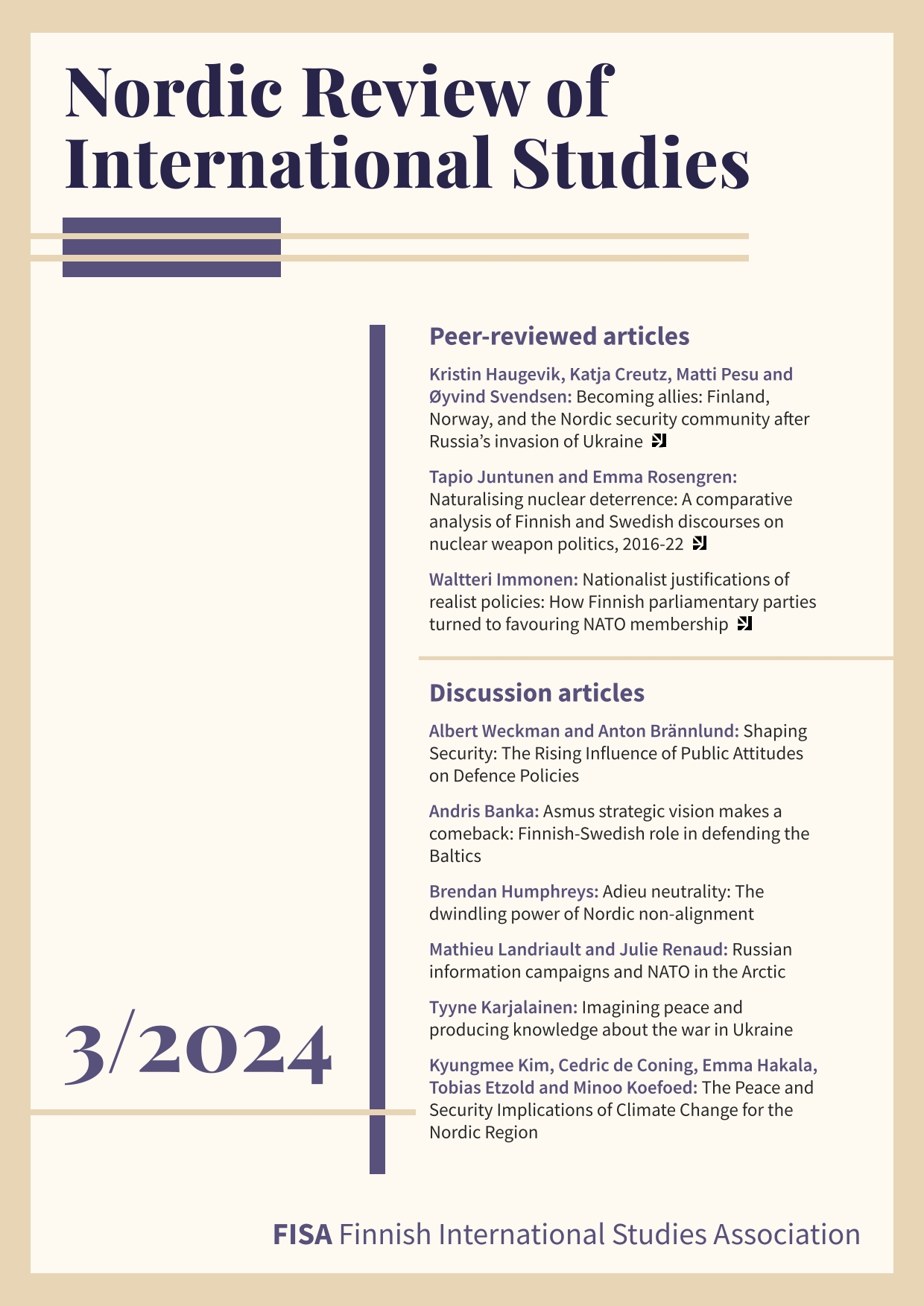Naturalising nuclear deterrence
A comparative analysis of Finnish and Swedish discourses on nuclear weapon politics, 2016-22
Avainsanat:
Nuclear disarmament, Extended nuclear deterrence, Depoliticization, Baltic Sea region, NATO enlargementAbstrakti
Finland and Sweden’s decisions to join NATO not only marks the end of a long period of neutrality and military non-alignment for the Nordic neighbours - they also require major shifts in their policies and self-perceptions related to nuclear weapons, disarmament, and nuclear deterrence. Drawing on a comparative research design and theory on depoliticisation, this article analyses how joining a nuclear alliance was made possible in two historical contexts marked by traditional opposition towards nuclear weapons. Comparing domestic deliberations about the Treaty on the Prohibition of Nuclear Weapons and NATO membership between 2016–2022, our findings suggest that two key narratives are essential for understanding how the nuclear dimension of NATO membership was reconciled in both countries. First, ‘the virtue of (disarmament) pragmatism’ narrative centres around how the historically stratified Finnish pragmatic approach to nuclear disarmament served as a guiding principle in both countries. Second, ‘the necessity of extended (nuclear) deterrence’ narrative enabled the nuclear dimension of NATO membership to become reconciled with Finland and Sweden’s historically neutral and non-aligned policies.
Tiedostolataukset
Julkaistu
Numero
Osasto
Lisenssi
Copyright (c) 2024 Tapio Juntunen, Emma Rosengren

Tämä työ on lisensoitu Creative Commons Nimeä-EiKaupallinen-EiMuutoksia 4.0 Kansainvälinen Julkinen -lisenssillä.
License Terms
-
Attribution — You must give appropriate credit, provide a link to the license, and indicate if changes were made. You may do so in any reasonable manner, but not in any way that suggests the licensor endorses you or your use.
-
NonCommercial — You may not use the material for commercial purposes.
-
NoDerivatives — If you remix, transform, or build upon the material, you may not distribute the modified material.





